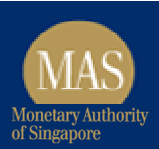Compliance
Singapore Adjusts Punishments On Wealth Manager Miscreants

The Asian city-state's regular varied punishment terms on two financial services professionals last week.
Singapore’s financial regulator has varied prohibition orders
against two senior figures working in the Asian city-state,
cutting the period of a ban on one of the persons and easing its
impact on another.
A four-year ban had been imposed on Lim Fang Wee, a former
Credit Suisse
representative, in May last year. The Monetary
Authority of Singapore had imposed the ban because Lim hadn’t
honestly conducted business and wasn’t a fit and proper person to
do so. Lim had deliberately concealed the identity of a true
beneficial owner of three accounts at Credit Suisse, making it
harder to detect suspicious transactions. Lee appealed the
decision and the MAS’ Appeals Advisory Committee has shrunk the
ban to three years, taking effect from 30 April this year.
In the second case, officials have decided to allow Kevin Scully,
who had been banned for three years from providing financial
services, to continue as a substantial shareholder of NRA Capital Pte, a
licenced financial advisor.
On 19 December 2017, MAS banned Scully for three years, with
effect from 18 December 2017. The regulator had acted because
Scully’s “past performance was unsatisfactory”. He hadn’t ensured
that NRA’s valuation service was performed with sufficient care,
judgment and objectivity, MAS said in a statement. The decision
was changed after Scully appealed the matter.
Scully can remain as a substantial NRA shareholder so long as he
undertakes to exercise any rights over the shares he owns in NRA
that would enable him to directly or indirectly influence the
management and operations of NRA in any manner, other than
receive dividends that shareholders might approve. Scully must
also tell NRA’s directors and managers that he has made this
undertaking and prove to MAS he has done so.
Apart from that variation, the prohibition order issued against
Scully will continue to be in effect for a period of three years
from 18 December 2017.